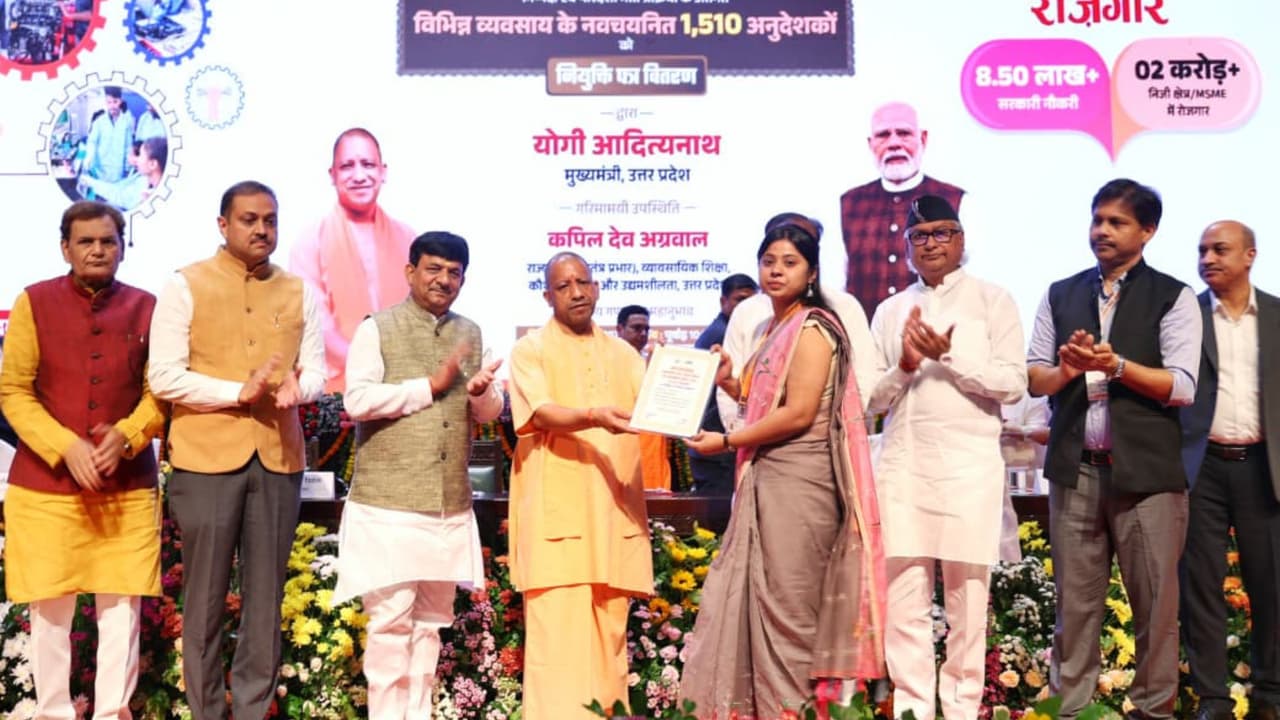UP government plans to transform the state into a global IT and AI hub by 2047, creating 15-20 decacorns, establishing AI cities in Lucknow and Kanpur, and preparing a 4 crore strong skilled workforce.
Lucknow, September 7: Over the past eight years, Uttar Pradesh has constantly progressed in new fields like information technology and artificial intelligence. Under the leadership of Chief Minister Yogi Adityanath, the state has taken concrete steps toward becoming a new technology hub, overcoming the challenges faced before 2017. CM Yogi envisions that by 2047, UP will host 15–20 decacorn companies, each worth $10 billion. To reach this goal, advanced technologies such as IT, AI, and deep tech are being encouraged, and more than four crore youths will be trained to become a global skilled workforce.
Before 2017, there were no concrete policy initiatives or major vision for the IT and digital sector in the state. Software exports and digital infrastructure were very limited. Initiatives like data centres existed only on paper, and the state was lagging in the technology race. After 2017, with the efforts of the Yogi government, India’s first data centre in North India has been established in Gautam Buddha Nagar, and more data centres are in the pipeline. The state has also set records in software exports, marking UP’s recognition on the national and global IT map.
As part of the short-term plan, AI cities will be developed in Lucknow and Kanpur by 2030. NCR, Lucknow, and Noida will become global capability centre (GCC) hubs. Incubation centres will be established in every division, and new unicorn startups (valued at $1 billion each) will be promoted. The government aims to have at least 20 unicorn startups ready by 2030. In collaboration with ISRO, satellite launches will be used to revolutionize disaster management and weather forecasting. Software exports will also be increased fivefold.
For the medium- and long-term plan, by 2047, Uttar Pradesh aims to become a global leader in AI, quantum computing, and blockchain. The state will be established as a world-class technology corridor. During this period, 15–20 decacorn startups (valued at $10 billion each) will be created, making UP the leading contributor to India’s IT exports.
The government’s strategy is based on four major pillars, including AI cities, green IT and sustainable tech, GCC, and space technology. Key focus areas include AI and deep tech innovation, expansion of digital infrastructure to tier 2 and 3 cities, satellite ecosystem, global startup connections, cybersecurity and data protection, university startup innovation fund, and research hubs.
To accelerate the vision for the IT sector, CM Yogi Adityanath has prioritized skill development. The goal is to train 100% of the state’s youth in industry-based skills and prepare a globally skilled workforce of over four crore people. The government also has an ambitious plan to include five educational institutions from the state among the top 200 institutions globally. Youth will be prepared for Industry 4.0, and world-class universities and R&D centres will be established.
The goal of ‘Viksit UP @2047’ is for the state’s economy to reach $6 trillion by 2047, accounting for 20% of India’s projected GDP. To achieve this, UP will need to maintain a compound annual growth rate (CAGR) of 16% from FY 2025–26 to FY 2047–48. In the current fiscal year, the Yogi government has set a target of a $353 billion economy, aiming to reach $1 trillion by 2030, $2 trillion by 2036, and $6 trillion by 2047.
During this period, the state’s per capita income is also targeted to reach Rs 26 lakh. CM Yogi Adityanath has a clear vision: by focusing on IT and skill development, UP can emerge not just as India’s digital powerhouse but also as a global technology hub. This initiative will create jobs for youth and give Uttar Pradesh a new identity on the world stage.
